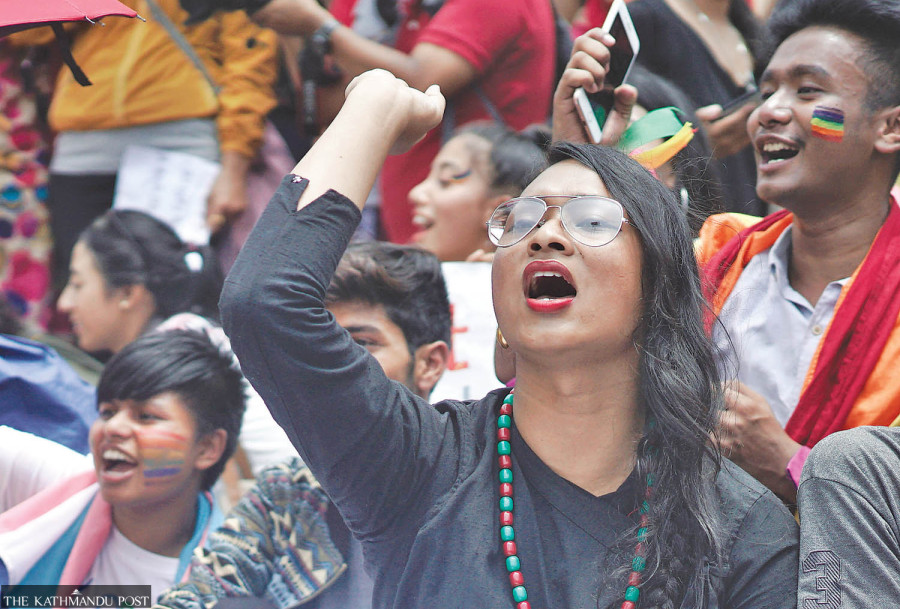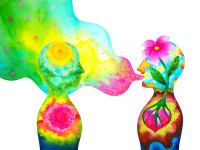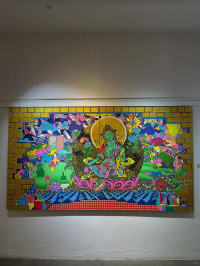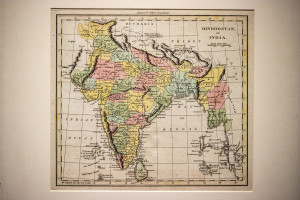Culture & Lifestyle
Championing change
Fighting for LGBTQI+ issues and indigenous people’s rights for nearly 10 years, Rukshana Kapali was listed as one of this year’s most inspiring women in the world by BBC.
Ayse Turcan
In the days following November 21, Rukshana Kapali garnered considerable attention. At times, she felt it was a bit overwhelming. The spotlight was on her due to her inclusion in the BBC 100 Women 2023 list. Annually, the BBC showcases a compilation of the most inspiring and influential women globally. This time, Rukshana Kapali found herself among notable individuals such as human rights lawyer Amal Clooney, Brazilian indigenous rights activist Sonja Guajajara and campaigner Michelle Obama.
Rukshana Kapali made it to the list for finding her own way of exploring the diversity of gender and sexuality, and fearlessly expressing her views. This hasn’t been easy, as transwoman Kapali describes herself as part of the project Sheisthestory, a social campaign led by Voices of Women Media where women tell their stories.
Even in childhood, before fully understanding the concept of gender, Kapali began to feel that the way society wanted her to be did not correspond with the way she felt. In ninth grade, after hearing the word ‘transgender’ for the first time, she started researching and reading all the articles she could find about gender diversity and identity.
Taking charge of her identity, Kapali adopted the name Rukshana Kapali and bravely came out at school, where she faced harsh discrimination and even physical attacks. Things got better in high school, where she started to explore yet another part of her identity while studying Nepal Bhasa. Since her parents didn’t want to speak the language with her, she learned it by herself and got involved in the Newa community.
Since embarking on her activism journey at the age of 15, nearly a decade has passed for Kapali. She clarifies that the causes she fights for have been shaped by life’s challenges rather than personal choice. “It’s not like I got to choose the causes I fight for,” she explains. Her activism stems from experiencing discrimination and choosing not to remain silent but to speak out.
Advocating for the rights of transgender and queer individuals, Newa people, and those from “lower” castes like the Jugi, Kapali employs various methods, including litigation, advocacy, writing, and translating books—it is difficult to understand how a 24-year-old has achieved so much. The BBC listing, to her, feels like a recognition of her work and efforts in overcoming numerous barriers.
Furthermore, she has successfully directed the spotlight towards her current causes: advocacy work and legal aid for the Queer Youth Foundation (QYF). The not-for-profit organisation, co-founded by Kapali a few years ago, focuses on addressing issues related to queer people and human rights. Beyond legal advocacy, it also engages in awareness campaigns and resource generation.
On this day, Kapali is heading to Pokhara, where she and her colleagues from the QYF are handling three cases related to the gender recognition of transgender individuals. Altering one’s gender from what was assigned at birth to their self-identified gender as a teenager or adult remains a challenging process. Despite some legal progress in recent years, there are no established procedural laws, by-laws, or regulations guiding the citizenship-changing process based on gender identity, she points out.
“This is why we began filing petitions under the extraordinary jurisdiction of the high courts,” she explains. Case by case, they approach the courts to assist individuals in changing their documents, striving to navigate the complexities of gender recognition.
Kapali, now in her third year of law studies, possesses a significant advantage in providing legal support to people. Her legal expertise extends beyond aiding the LGBTQI+ community; she also champions the cause against forced evictions of Jugi people, her family’s Newa caste. In addition to law, she holds a bachelor’s degree in linguistics and is proficient in eleven languages at varying levels. Her fascination with languages began in the 7th grade, inspired by a teacher who ignited her interest.
Currently motivated by the potent combination of language skills and legal knowledge, Kapali is eager to expand her linguistic repertoire. Her current goal is to learn the most widely spoken language in all South Asian countries, followed by the second major language in each country—a pursuit she whimsically refers to as her “South Asian bucket list of languages.”
Reflecting on LGBTQI+ rights, Kapali acknowledges notable changes since she embarked on her advocacy journey. While not describing it as radical, she notes substantial improvements. There’s increased discourse on queer people’s rights, heightened visibility of the community, expanded spaces and improved connections, she observes.
When asked about her plans for the next ten years, Kapali takes a moment to reflect before stating, “I know for sure that I’m gonna be a lawyer.” Beyond that certainty, she intends to persist in her current advocacy work. She expresses a desire to pursue a PhD, possibly conducting research on gender rights in South Asia—a field where she can leverage her existing language skills and those she aims to acquire. With a cheerful laugh, she envisions becoming “Doctor Rukshana”, a childhood dream that she is determined to achieve. There's little doubt she’ll attain this goal.
The Transgender Pride Parade, organised by the Queer Youth Group, is happening in Kathmandu today. The meeting point is Pukhusi Kyaba, opposite Ratnapark. The parade starts at 12 pm.




 10.95°C Kathmandu
10.95°C Kathmandu





.jpg&w=200&height=120)









